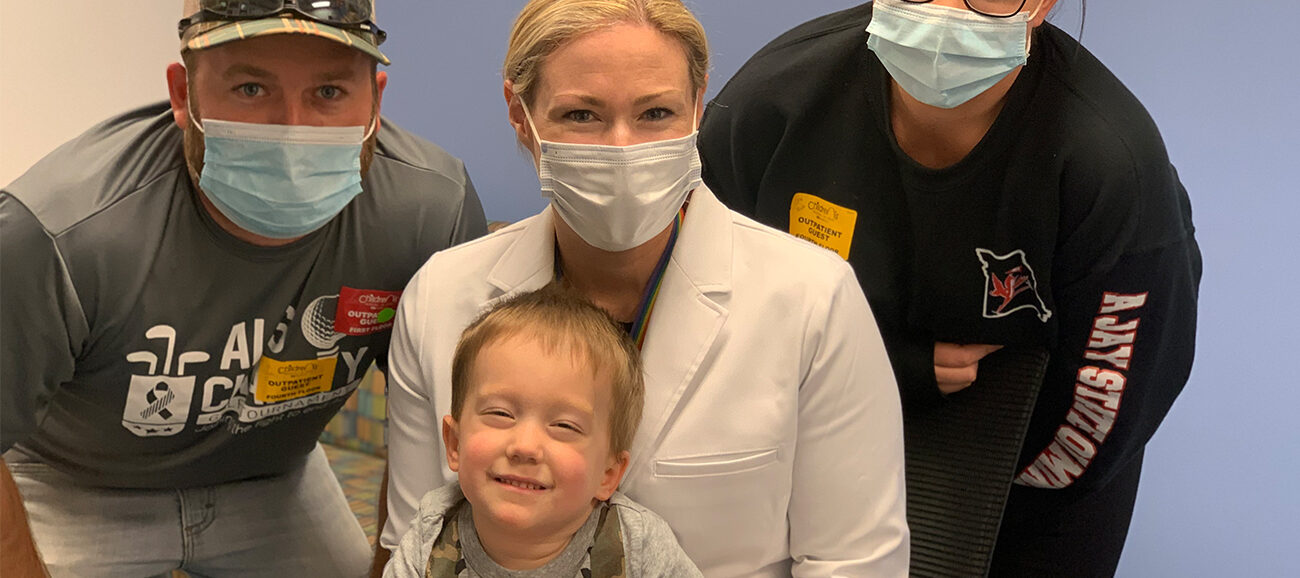Fetal and Pediatric Spina Bifida

Call 314-454-2810 for Patient Appointments
What is spina bifida?
Spina bifida commonly involves a spectrum of related neurological disorders, including myelomeningocele, hydrocephalus, Chiari type II malformation, syringomyelia, spinal deformity/scoliosis, and, with time, the possibility of a tethered spinal cord. Our neurosurgeons are experts in the treatment of each of these conditions and have developed systematic approaches for assessing each one as it pertains to the others.
Why rely on Washington University experts to treat spina bifida?
Washington University pediatric neurosurgeons provide comprehensive neurosurgical care for persons with spina bifida, from infancy to adulthood. As key members of a large multidisciplinary Spina Bifida Team at Washington University/St. Louis Children’s Hospital, we partner with our colleagues in urology, orthopedics, neurology and orthotics to ensure that each child’s care is considered thoughtfully and completely.
Our Spina Bifida Clinic facilitates communication among all team members, patients and their families in real time, so care decisions are made with the whole patient in mind.
Spina bifida treatments
We also are experienced in the surgical management of the many variants of spina bifida occulta, including
- lipomyelomeningocele
- spinal lipomas
- tethered spinal cord
- diastematomyelia
- bony vertebral abnormalities (e.g. hemivertebrae or butterfly vertebrae)